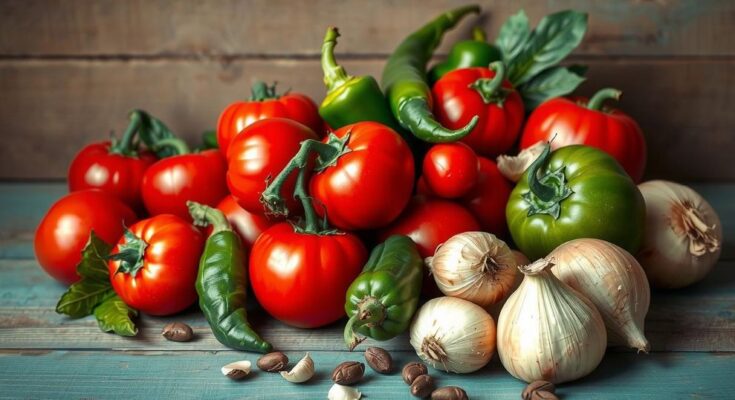The PricePally 2024 Stew Index Report reveals a 121.05% increase in the cost of preparing a pot of stew in Nigeria, necessitating over 25% of a minimum wage earner’s salary. Major ingredients for stew have doubled in price, with economic instability and supply chain issues exacerbating food costs. A deeper food crisis in Nigeria is evident as households grapple with declining incomes and rising inflation.
The cost of preparing a pot of stew in Nigeria has surged dramatically, increasing by 121.05 percent within a year. Minimum wage earners now need to spend over 25 percent of their salary on this essential dish, illustrating the severe food crisis in Nigeria, as highlighted in the PricePally 2024 Stew Index Report.
According to the report, the price of ingredients essential for stew, including tomatoes, onions, and proteins, skyrocketed between July 2023 and September 2024. For instance, the cost of a pot of beef stew escalated from N8,060 last year to N17,817 this year, while chicken stew rose from N7,085 to N15,034. Additionally, prices for turkey and goat meat stews saw similar alarming increases.
Households in Nigeria are facing decreasing real income, with household consumption plummeting from N22.3 trillion to N10.6 trillion. Inflation, which reached 24.48 percent in January alongside food inflation at 26.08 percent, has forced families to prioritize essential expenses, thus reducing discretionary spending.
The 2024 Stew Index specifies that with the new minimum wage of N70,000, a single pot of beef stew now consumes 25.45 percent of a minimum wage worker’s monthly salary. In contrast, when the minimum wage was N30,000, the same stew accounted for a staggering 59.39 percent of their income. The ramifications are more significant for those cooking stew weekly, consuming over 101.81 percent of their new minimum wage.
The report indicated that the dramatic price surge in stew ingredients was marked by substantial increases in the costs of tomatoes, onions, and proteins. For instance, tomatoes skyrocketed from N1,506 per kilogram to N2,625, while onions surging by 200 percent from N971.86 to N3,000.
Numerous factors are driving these price increases, including economic instability, supply chain disruptions, and climate-related issues. The depreciation of the naira and insecurity in key agricultural areas have exacerbated food costs. Moreover, extreme weather events, such as heavy rainfall, have caused temporary relief but ultimately led to significant price surges due to subsequent transportation difficulties.
The troubling rise in the cost of preparing stew in Nigeria underscores the country’s ongoing food crisis and economic challenges. With essentials consuming a large portion of minimum wage earnings, the financial strain on households is mounting. Identifying the causes, such as inflation, currency depreciation, and insecurity, is crucial for addressing this pervasive issue affecting the Nigerian population.
Original Source: businessday.ng




